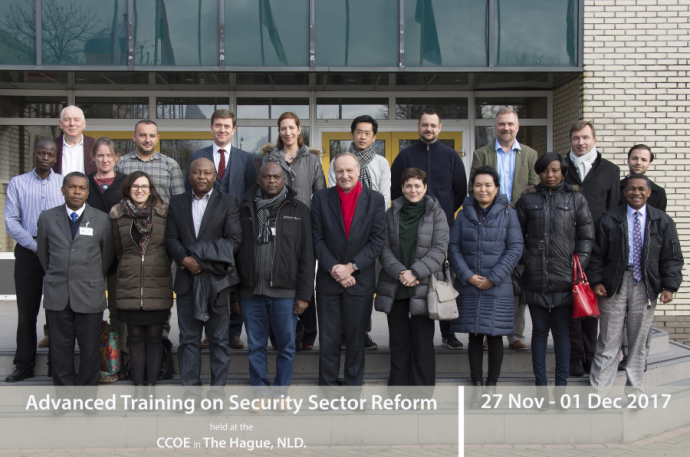Alumni Spotlight
Raushan Bolotalieva: Alumni Travel Grant 2017
I am very grateful to the OSCE Academy in Bishkek and the Norwegian Institute of International Affairs for providing me this great opportunity to attend the Advanced Training on Security Sector Reform in The Hague, Netherlands from 27 November to 1 December 2017. This five-day intensive residential course was organized by the Dutch Ministry of Foreign Affairs in collaboration with the International Security Sector Advisory Team (ISSAT) of the Geneva Centre for the Democratic Control of Armed Forces (DCAF). The training was aimed at those who are just about to be deployed in a bilateral, regional or multilateral mission to support security sector reform programmes or those who work in the area of SSR with programme design or at policy level.
As a person who has just stepped in the policy level as a SSR advisor, I have been privileged to learn from senior practitioners and professionals who are working closely on issues related to SSR. These people representing civilian, military and police personnel, as well as civil society and private sector, have shared their experiences from different countries. I have had a chance to be exposed to versatile SSR processes such as: in Madagascar and Central African Republic where it took years to have the key stakeholders cooperate and eventually own the on-going SSR, in Uganda where it is being carried out across dimensions of security and justice sectors as well as economic development and Greece where it currently deals with border and refugee management.
Understanding the changed nature of conflict and security over recent years, it is evident that security agenda today cannot be limited to the boundaries of a state only but has to embrace the wellbeing of the population and respect for human rights. Thus, within SSR, the concept of security encompasses the issues of human security. In fact, the process requires a holistic approach to the security sector because security problems which people face today often reflect the wider structural challenges in a society and can no longer be seen in isolation from their political, economic and social context. Therefore, the reform of security and justice institutions is political, technical and holistic process which requires expertise in a number of disciplines, and a diverse mix of skills and knowledge.
The training course has convinced me that the above-mentioned knowledge and skills, including sensitivity to the need for a coherent, coordinated institutional approach, provided that those are embedded into local ownership, is the key prerequisite for translating SSR policy into effective programmes on the ground. Indeed, existence of the security and justice sector’s regulatory framework based on the democratic principles and respect for human rights does not guarantee resultative SSR. It is therefore central for SSR to ensure that the necessary capacity is available. Even though many states have gained considerable achievements in reforming their security sectors, there still remains an important gap in the practical knowledge and expertise relating to the subject. It is for this reason that I have participated in this training and would like to reiterate my deep gratitude to the ISSAT/DCAF talented facilitators Kurt Eyre, Heather Huhtanen, Piet Biesheuvel and Jonathon Marley who did their best to make the course as interactive and useful as possible.
ISSAT/DCAF provides practical support to the international community in its efforts to improve security and justice, primarily in conflict-affected and fragile states. It does this by working with a group of member states and institutions to develop and promote good security and justice reform practices and principles, and by helping its members to build their capacity to support national and regional security and justice reform processes.



 Русская версия
Русская версия